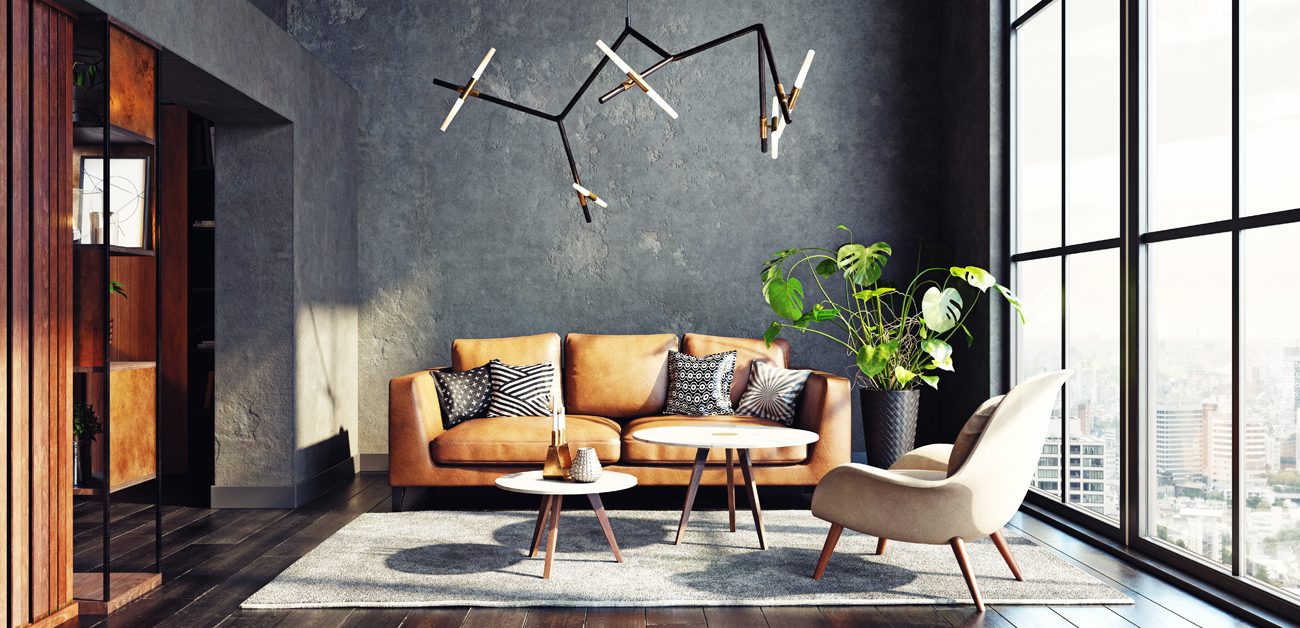
The coronavirus has grounded many businesses, but the home improvement industry is thriving. Here are projects homeowners can take on safely to make their lives more enjoyable.
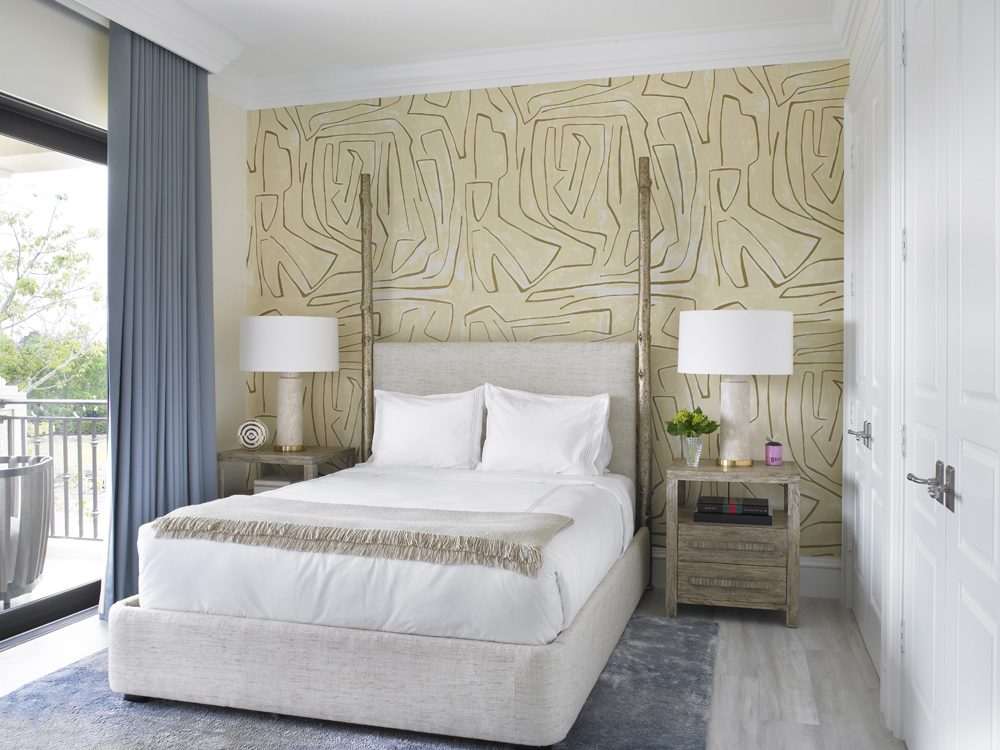
© Troy Campbell for Fein Zalkin Interiors
As homeowners continue to stick close to home, they’re spending a lot of time pondering their surroundings.
“After homeowners have been staring at their walls day in and day out, they’ve come to realize what they want to keep, redo, and buy new,” says Jenny Zalkin, partner at the Miami-based Fein Zalkin Interiors.
REALTOR® Magazine asked home professionals to recommend a variety of improvement projects and renovations that can be accomplished now, during the pandemic, without a lot of contractors or other design professionals working in close quarters. Their suggestions fall into four main categories that you can share with your clients.
Complete the work in progress. If your client already started work on their house but paused due to the coronavirus outbreak, they should focus on having it completed. With states opening back up—typically in phases for different types of businesses—tradespeople can return to finish jobs by putting extra safety procedures in place. Beatrice de Jong, consumer trends expert for Opendoor, says her builder has restarted work on a room in her Los Angeles home after putting up a temporary wall in her open floor plan so that they are never in the same space.
Corinne Corbett, a designer with Affordable Granite and Cabinetry, which temporarily shuttered its Fishkill, N.Y., kitchen and bathroom showroom, is now seeing clients by appointment only. “It’s a way to control the flow of foot traffic into the showroom. Staffing is still staggered, and some continue to work from home,” she says.
While work is proceeding, Corbett says clients should prepare for jobs to take longer than usual due to the backlog home product manufacturers and distributors are facing after being closed for several weeks.
To cope during the pandemic, professionals like architect Mark A. Sullivan with JZA+D in Princeton, N.J., became adept at conducting business without much in-person contact and the arts of social distancing, wearing masks and gloves, and following all requirements. Despite still having less work than usual, Sullivan’s firm continues to prepare for approval of permits and budgets, so they can quickly ramp up as COVID-19 cases go down.
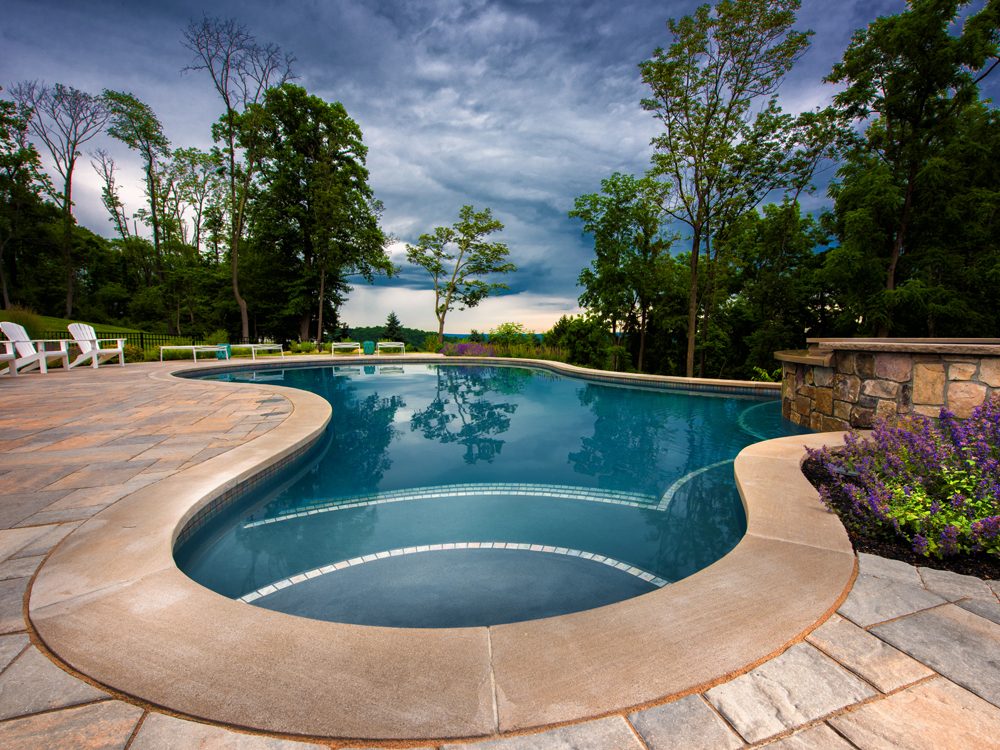
© Jimi Smith for Howard Roberts Liquidspaces
Get exterior upgrades on the priority list. Almost anything that needs to be done outside a home or in a yard can be tackled safely, but it’s up to the professionals to decide what work they feel comfortable performing, whether they have staff to help, and if materials are available.
Howard Roberts, owner of Liquid Inc. and Liquidscapes, a full-service pool, landscape design, and build firm in Pittstown, N.J., has continued to handle large projects such as swimming pools during the pandemic. Interest has soared as people have been confined to their homes, he says. However, since mid-March, he started asking clients three critical questions: “Are you still comfortable proceeding with your project from a health standpoint? Are you OK with our company working on your premises but in a safe manner? Are you still comfortable spending the money to finance the project with the current economic conditions?”
Roberts requires payment up front to secure dwindling inventory due to manufacturer stoppages, even if the materials won’t be used for several weeks or months. Clients have been helpful, he says, by allowing his company to store materials on their sites. “Situations are in constant flux with many contractors, subcontractors, vendors, and suppliers affected in one way or another by the pandemic. It’s a roller coaster,” he says. “We approach each job and day knowing things may change.”
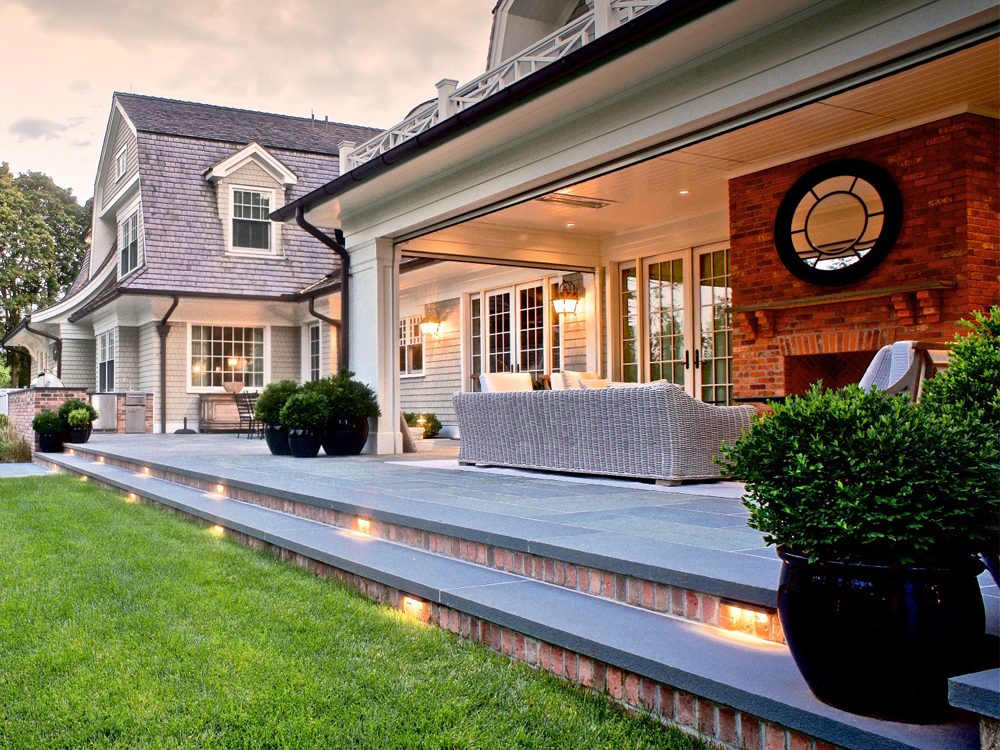
© Marc Nissim / Harmony Design Group
Landscape architect Marc Nissim, owner of Harmony Design in Westfield, N.J., is working on residential exteriors but has his crew keep a 6-foot social distance from one another on site. Nissim’s staff also travels to jobs solo and wears masks if they need to be close, Nissim says. “It’s a good time for our firm to prune, edge, weed, plant, mulch—almost anything outdoors,” he says.
Like Roberts and Corbett, Nissim is facing challenges procuring materials. He’s also telling clients they’ll need to be patient when securing approvals and permits from building departments because many still have shorter hours.
Homeowners can always ask companies what they’re are doing to maintain safety. “When we meet with homeowners, I call or text when I arrive rather than knock on a door so there’s no physical contact,” Nissim says. “We maintain social distance if they want to come outdoors and meet. If they prefer to remain inside, we talk on the phone while I walk the yard and point out anything I want to explain.”
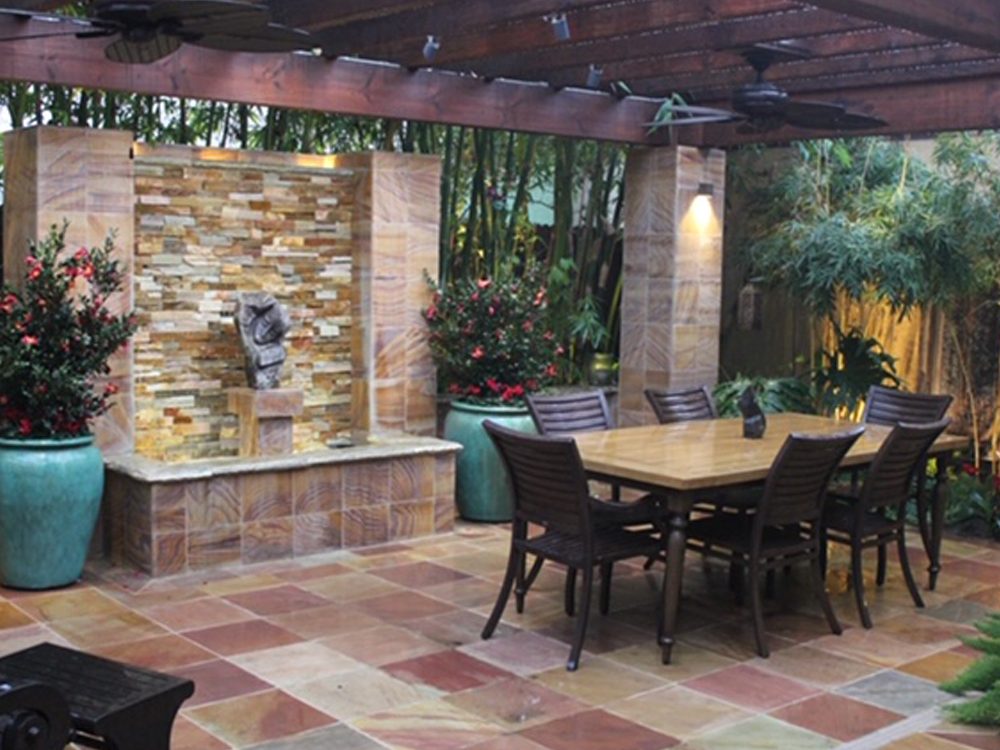
© Michael Glassman / Glassman & Associates
When the pandemic hit in March, most of landscape designer Michael Glassman‘s work stopped, and the staff at his eponymous Sacramento, Calif.–based firm stayed home. Glassman suddenly found himself with time to use his training in custom pruning of unusual plants, such as Japanese maples. “I sent out a letter, offered clients a reduced rate, and I was swamped. I booked nine in the first hour,” he says. He also found that many suppliers of hardscape materials, such as tile and stone and outdoor furniture, were offering discounts to attract business.
As of early June, Glassman and his staff are back at work fulfilling requests that have ramped up as homeowners invest in beautifying their yards for a staycation summer. “Many clients are now comfortable going to a nursery with me if we socially distance and meet outdoors,” he says. “Everyone wants work done yesterday.”
Start new interior projects with some adjustments. Real estate agent Barbara St. Amant with Atlanta Fine Homes, Sotheby’s International Realty in Atlanta, suggests that homeowners use the time to make their lives more enjoyable. Quick updates that add value and help with a sale include changing hardware pulls and knobs in kitchens, modernizing light fixtures, replacing worn carpet, and neutralizing wall colors.
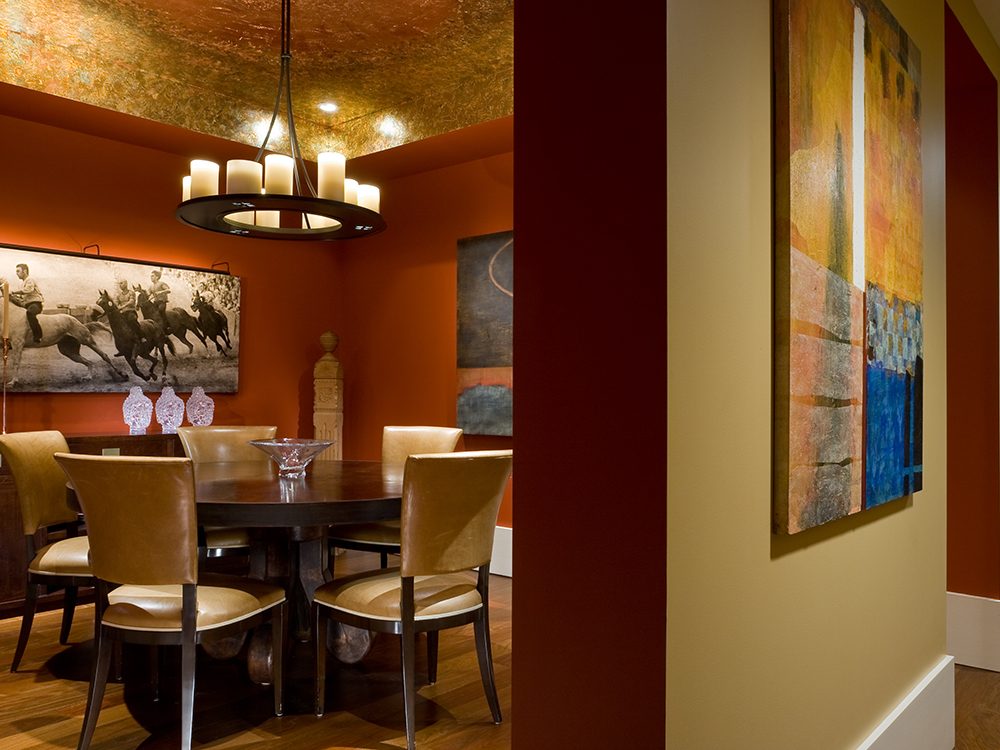
© Van Inwegen Digital Arts for Kaufman Segal Design
Homeowners can get inspiration from interior design magazines and websites. Chicago designer Tom Segal of Kaufman Segal Design mails area publications such as Luxe Interiors + Design to clients to offer ideas “and relieve boredom,” he says. He provides some caveats. “I wouldn’t have a client select a chair or couch if they or I haven’t sat in it since comfort remains key,” he says. “But I can pick fabrics and wallpapers for a space I know.”
While many clients were hesitant about spending money at the beginning of the pandemic, Segal now finds that more are returning to their typical budgets. However, he says it’s harder to read clients’ reactions when working with them virtually. “If I show a $10,000 rug, I might see an eyebrow raised in person and know it’s too much, but I may not catch that online,” he says. This makes verbal and written communication more important than ever, Segal says, encouraging homeowners to be clear about what they like and don’t like.
Online Design Resources
Stuck at home? All those cluttered bookshelves, overstuffed closets, worn carpets, and boring paint colors are becoming tiresome for your clients who see them 24/7. But many homeowners need some extra inspiration to imagine how they might spruce up their homes and condos now or as the pandemic wanes more. These 11 sites and online publications offer ideas to start.
Zalkin and her business partner Josh Fein have continued to work since the start of the pandemic, but they initially focused on clients whose homes they know. “I can’t make good choices without knowing a space’s scale,” Fein says. They suggest that clients take inventory of their home and write down notes on what they want to change. “What we continue to see is a lot of clients wanting to convert a room into a home gym or home office because they’re using their homes more during this period,” Zalkin says.
Since stay-at-home orders have eased in their Florida market, Zalkin and Fein are getting back out and visiting properties in person as long as clients are comfortable having them in their homes. “We wear masks and socially distance,” she says.
Corbett’s firm used social media outreach to take on new virtual consultations, and because of that, new clients are now reaching out to the firm to complete the work. “We looked at clients’ kitchens or bathrooms via FaceTime or Zoom and had homeowners take rough measurements. Then we looked at vendors’ websites together and developed a rendering that could be emailed,” she says. For those who now want to proceed, the firm is moving forward by conducting accurate field measures in their homes and finalize choices, she says.
Become a DIYer. Even if homeowners don’t consider themselves handy, they might want to try some easy DIY projects while they wait out the pandemic. Chicago sales rep Jennifer Ames of Engel & Völkers sees the silver lining in this time at home. “The market has slowed but it’s not shut down, and there’s never been a better time to get most projects done than now.” She suggests that homeowners go through their house and toss or give away what they don’t want since most nonprofits aren’t accepting donations right now because of the virus.
One project that might appeal to homeowners is painting a room, a piece of furniture, or cabinets. Experts say to start small and look at YouTube tutorial videos for help. Some explain how to measure walls and ceilings to calculate the right quantity of paint. Homeowners can also find websites that list supplies, such as The Crazy Organized Blog, which suggests brushes, tape, drop cloths, rollers, a ladder, and more. Most paint manufacturers offer color chips or bigger cards for purchase so homeowners can test colors on their walls, and many home improvement stores are open for business or offer curbside pickup.
Two DIY tasks that Fein and Zalkin suggest are to rearrange a gallery wall of artwork or photos or move around furniture that’s been in the same place a long time. Start with a room you feel is stale or move artwork from room to room and change it up to make a space feel different and fresh while bringing in new colors,” Zalkin says. “Even moving a chair can give it a fresh look.”
Outdoor work offers homeowners more DIY projects, particularly now that weather is warmer. St. Amant suggests pressure washing patios and walks and laying pine straw or other mulch in freshly planted gardens. Other easy projects that increase outdoor curb appeal include replacing house numbers and light fixtures. Painting a front door can add a new pop of color—and it doesn’t require much setup or planning, says Sue Wadden, director of color marketing at Sherwin-Williams, which offers how-to videos on its website. Good colors to make a door stand out, she says, are rich blues (such as the company’s Oceanside SW 6496) or corals (Begonia SW 6599). For a more classic, elegant look, she recommends navy (Naval SW 6244) or true black (Tricorn Black SW 6258).
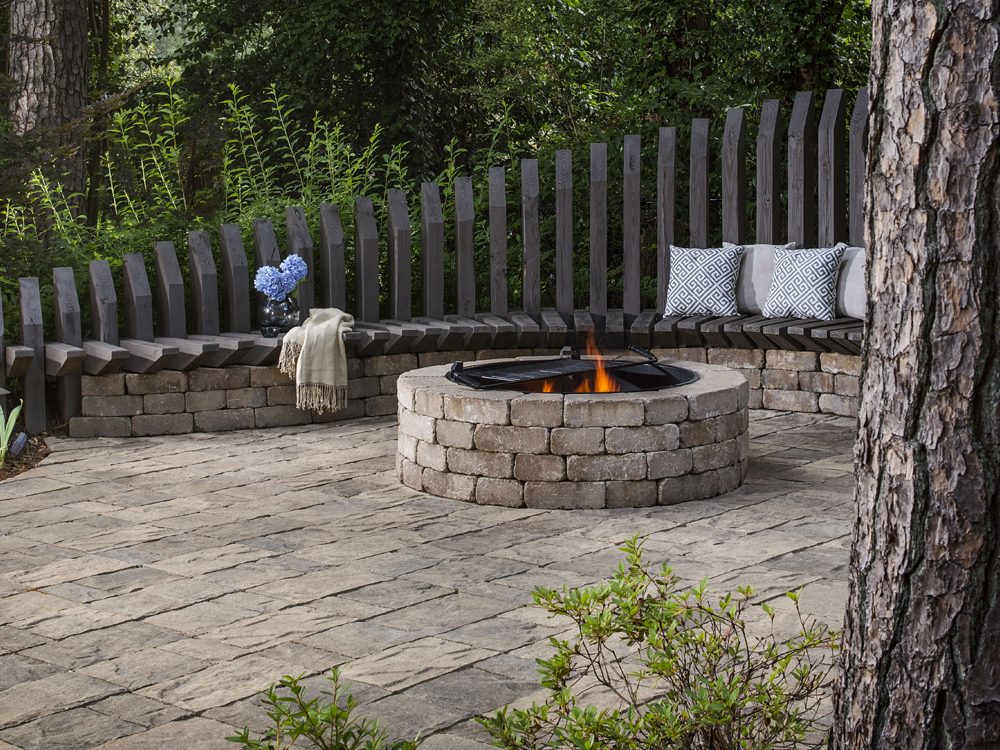
© Belgard
More time-consuming but still doable DIY projects include edging borders, installing planter beds, or assembling a fire pit, says Joel Raboine, director of residential hardscape for Belgard, an Atlanta-based manufacturer that sells kits. “Many view the finished spaces as places they’ll now use day-to-day rather than reserve for company,” Raboine says.
Because of the virus, Doug Santini, owner of Northern Dutchess Botanical Garden in upstate New York, advises homeowners to take a plant list with them when they shop to curtail time spent around others. His website offers all kinds of garden tips, but his most useful advice may be: “Don’t stop gardening. It helps center and relax people.”






